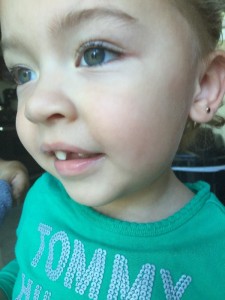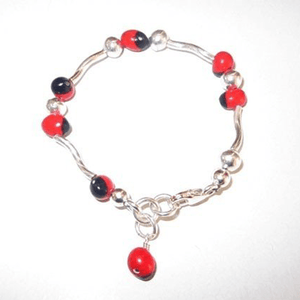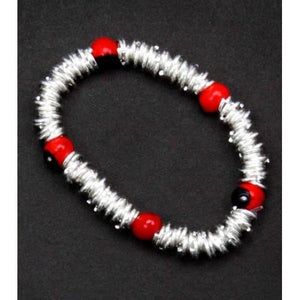Latest News Latest News
How to prevent teeth infection in kids after an accident How to prevent teeth infection in kids after an accident
 There are many ways to lose a tooth and here is my story the one I never thought I could be sharing; I wish I could have known what to do after my daughter’s accident.
There are many ways to lose a tooth and here is my story the one I never thought I could be sharing; I wish I could have known what to do after my daughter’s accident.
My two year old went to the play area with daddy, she accidentally fell off and broke a little corner of her teeth, we thought it would be OK and decided not to do anything about it. Although few weeks later we saw she had a small bump on her gumms so we took to her pediatrician who suggested antibiotics and a visit to the dentist.
The dentist examine her and after x-rays said her nerve was dead and she was developing a gumm infection that could grow if we didn’t remove her tooth. So her first dentist was literally to remove her teeth, which is not so good for my daughter to remember.
This week we went back for cleaning, check up and see if she could have a flipper/retainer the size of her tooth that will fill in the awful space missing in the front (I was trying to find a way to esthetically, not to look so bad) well after cleaning her teeth the doctor said we won’t be able to do anything at this point cause is hard to keep her quite, without crying , opening her mouth big to get impressions and do the procedure.
I understood what the doctor said: this will pass, her accident could have been worse and she is OK, although as a parent I looked at her and is like oh NO! her front tooth. NO! why me…LOL and is not me I know I just have to understand kids are kids and accidents happen and I know it could have been worse.
 So my advise is take your kid to the dentist immediately and establish good oral health habits with your child. There are basic preventive steps to help your child maintain good oral health:
So my advise is take your kid to the dentist immediately and establish good oral health habits with your child. There are basic preventive steps to help your child maintain good oral health:
- Establish good dental hygiene habits early. When your child is 12 months old, you can begin using toothpaste when brushing his or her teeth. When the gaps between your child’s teeth close, it’s important to start flossing.
- Serve as a good role model by practicing good dental hygiene habits yourself.
Schedule regular dental visits for family checkups, periodontal evaluations and cleanings. - Check your child’s mouth for the signs of periodontal disease, including bleeding gums, swollen and bright red gums, gums that are receding away from the teeth and bad breath.
Hope this helps;)
Sincerely
Evelyn Brooks
 There are many ways to lose a tooth and here is my story the one I never thought I could be sharing; I wish I could have known what to do after my daughter’s accident.
There are many ways to lose a tooth and here is my story the one I never thought I could be sharing; I wish I could have known what to do after my daughter’s accident.
My two year old went to the play area with daddy, she accidentally fell off and broke a little corner of her teeth, we thought it would be OK and decided not to do anything about it. Although few weeks later we saw she had a small bump on her gumms so we took to her pediatrician who suggested antibiotics and a visit to the dentist.
The dentist examine her and after x-rays said her nerve was dead and she was developing a gumm infection that could grow if we didn’t remove her tooth. So her first dentist was literally to remove her teeth, which is not so good for my daughter to remember.
This week we went back for cleaning, check up and see if she could have a flipper/retainer the size of her tooth that will fill in the awful space missing in the front (I was trying to find a way to esthetically, not to look so bad) well after cleaning her teeth the doctor said we won’t be able to do anything at this point cause is hard to keep her quite, without crying , opening her mouth big to get impressions and do the procedure.
I understood what the doctor said: this will pass, her accident could have been worse and she is OK, although as a parent I looked at her and is like oh NO! her front tooth. NO! why me…LOL and is not me I know I just have to understand kids are kids and accidents happen and I know it could have been worse.
 So my advise is take your kid to the dentist immediately and establish good oral health habits with your child. There are basic preventive steps to help your child maintain good oral health:
So my advise is take your kid to the dentist immediately and establish good oral health habits with your child. There are basic preventive steps to help your child maintain good oral health:
- Establish good dental hygiene habits early. When your child is 12 months old, you can begin using toothpaste when brushing his or her teeth. When the gaps between your child’s teeth close, it’s important to start flossing.
- Serve as a good role model by practicing good dental hygiene habits yourself.
Schedule regular dental visits for family checkups, periodontal evaluations and cleanings. - Check your child’s mouth for the signs of periodontal disease, including bleeding gums, swollen and bright red gums, gums that are receding away from the teeth and bad breath.
Hope this helps;)
Sincerely
Evelyn Brooks




